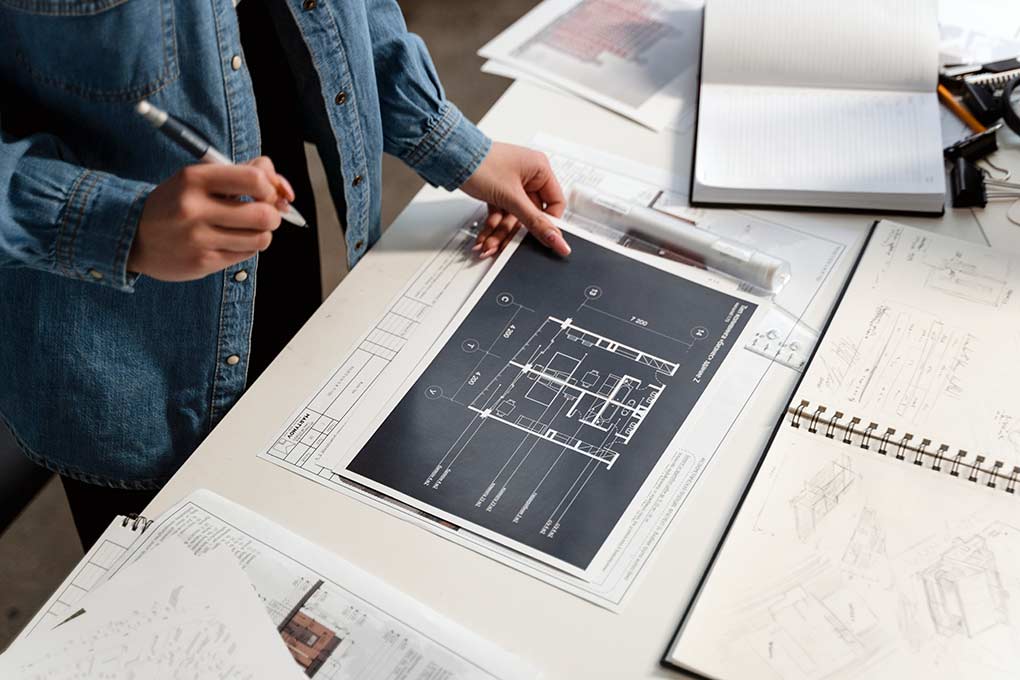Are you dreaming of owning a charming villa in Tuscany, a stylish apartment in Rome, or a serene seaside home on the Amalfi Coast? In this guide, we’ll walk you through the entire process of buying property in Italy as a foreign buyer. From legal requirements to finding your dream home, we’ve got you covered!
Before you start reading this fully complete guide: we can help you through the process of buying or investing in Italy. Here is an overview of our services:
- Italian Fiscal code
- Loan and mortgages (also for foreign buyers)
- Property research and property consultancy
- Negotiation
- Due diligence
- Technical consultancy (surveyor service and check of conformity)
- Bureaucratic assistance until the notarial deed
The suggestions in this guide are meant if you are doing your purchase alone, if you want to have a consultant on your side we will do the annoying part for you and help you understand the Italian real estate market.
What to Do Before Buying a House?
There are several steps you should take before you even begin searching for a property to buy. These actions will help you understand:
- How much you can realistically spend on a home.
- The costs you’ll need to account for.
- The features you’re looking for in the property.
While these may seem like obvious steps, they’ll make the buying process much smoother and save you both time and money.
How Much Does It Cost to Buy a House?
This question refers to the expenses associated with purchasing a property, including:
- Notary fees
- Taxes
- Agency fees
- Contract registration
- Any mortgage costs
In addition to the cost of the home itself, these expenses generally add up to around 10% of the purchase price. For example, if you’re buying a house for $100,000, expect to pay about $10,000 in additional fees.
You can get a breakdown of the costs and taxes in this article:
Check Your Mortgage Eligibility
First, contact your bank or a mortgage broker to understand exactly how much you can borrow (if you’re planning to finance the purchase with a loan).
Do you know? -> You can get a Loan in Italy at a really cheap interest rates, also if you are a foreign buyer. Contact us for more info.
I also recommend to watch this in-depth video:
Calculate Your Budget
After considering the mortgage and costs (as mentioned above), you can calculate your budget for purchasing your home.
Your Budget = Savings + Mortgage – Costs
Remember, banks typically lend you (if you don’t have income in Italy) about 50-60% of the purchase price, so you’ll need to have the remaining plus the additional costs (about 10% of the purchase price) on hand.
Define What You’re Looking For
Describe in great detail the house of your dreams (or the one you want to buy), including as many specifics as possible.
You might also want to answer these questions to get a clearer picture:
- Where should the house be located?
- Is it an apartment, detached house, duplex, or something else?
- What is the required square footage?
- How many bedrooms and bathrooms should it have?
- Should the kitchen be separate or open-plan?
- Does it need outdoor spaces (garden, terrace, balconies…)?
- What floor should it be on (ground, middle, top)?
- Should it be move-in ready or in need of renovation?
- What should the price be?
- Does it need additional spaces (garage, cellar, basement, attic)?
Answering these questions will give you a solid description of the property.
Next, divide these characteristics into must-haves (things you cannot compromise on) and wants (features you’d like but could live without). This will help you make decisions when comparing properties and making offers. Price, of course, should be in the must-have category.
| Essential Features | Desired Features |
|---|---|
| At least 90 sqm | Double bathroom |
| At least 2 bedrooms | Terrace |
| Max price $200,000 | New construction |
| Garage | Attic |
A property with all the must-have features should take priority over one with lots of desired features but lacking in essentials.
Finding the Right Property
Finding the right home can be a long and stressful process, but don’t worry! Here are some tips to help you make the search easier.
The first thing to remember is not to rush or start viewing properties without first doing a thorough analysis. Read up on everything you need to know, or you risk wasting time.
Where to Search for Your New Home
There are three main areas you should focus your search on:
Real Estate Portals
These websites offer numerous listings of homes for sale, from both private sellers and agencies. Make sure you understand who you’re contacting.
- Immobiliare.it: Perhaps the most popular portal in Italy for finding homes.
- idealista: Another highly used portal, also available in Spain and Portugal.
- Casa.it: A site for real estate listings.
Other online places to check include Facebook Marketplace, Subito.it, and Kijiji, but I find the first three I listed are the most reliable.
In the Area
This doesn’t mean you need to patrol the area, but simply keep an eye out when you’re in the neighborhoods you like. Look for “for sale” signs on houses and in the windows of real estate agencies. You might spot something interesting!
Spread the Word
Talk to friends, family, and acquaintances about your home-buying plans. Often, deals happen through word-of-mouth—someone might know of the perfect property for you!
Stay Organized
Staying organised is key when you start such a big project as buying a home. You’ll see many properties—some will interest you, some won’t—and you’ll talk to many people (agents, owners, contractors), which can get overwhelming. But if you follow this method, it will be much easier.
Here’s what I recommend to my clients when buying a property:
- Create a shared folder on the cloud (Google Drive, OneDrive, Dropbox…). The cloud is an online service where you can store documents and access them from any device, anywhere. You can also share the folder with others who are helping you with the search. This way, you can always keep the list of properties you’re interested in and important documents with you.
- Create a file with a list of properties you’re considering. Be sure to include the link to the listing, the agent or owner’s contact details, and your notes on the property as reminders.
Color-code the properties:
- Green: Properties that meet all the must-have criteria.
- Yellow: Properties that don’t meet all the criteria but are still worth considering.
- Red: Properties that don’t meet the criteria at all.
Focus on the green ones—they are the right homes for you. Don’t waste time on the others.
Example of Property List Used with an American Client

Once you’ve chosen your perfect home, create a shared folder and upload all relevant documents related to the property (more details below).
Finding the right home can be a long, stressful process, but it should also be a fun and exciting journey. After all, you’re making a big positive change in your life!
That’s why we created our Property Consultancy service to assist you all the way to the notarial deed. We’ll help you from the property search to setting up utilities in your new home.
First Call: What to Say (and What Not to Say)
Once you’ve narrowed down your choices (the green ones), it’s time to call the agent or owner to set up a viewing.
During this first call, make sure the property actually meets your requirements and won’t be a waste of time. This is your primary goal, in addition to checking if there are any potential issues that could hinder the purchase.
Ask questions, but don’t give away too much information about your needs and desires that could be used against you in future negotiations.
The goal is to learn as much as possible while revealing as little as possible about your situation.
Of course, there’s no need to be rude—always keep the tone polite and friendly.
Here’s what you should never say (or let slip indirectly):
- “I’m in a hurry to buy a house.”
- “I really like this house, I’m in love with it.”
- “I can’t find any other houses.”
- “The price is low.”
Basically, don’t give the impression that this is the perfect house or that you’re desperate to buy (even if you feel that way). This could work against you in the negotiation.
What to Check When Visiting a Property
There are many aspects to consider when visiting a property. Don’t get carried away by the beauty of the house or the words of the real estate agent—stay focused!
What to Check Before Entering the House
Your assessment starts before you even step inside. Observe the neighbourhood and nearby buildings: are they well-maintained and pleasant, or do they give an impression of neglect?
Take note of traffic, nearby businesses that might produce unpleasant smells or noise, and parking availability. Is it easy to find a spot?
Additionally, consider the proximity to essential services like grocery stores and pharmacies or other amenities that matter to you, such as schools or gyms.
Elements of the Condominium
The condominium itself deserves close attention. Inspect the condition of facades, balconies, gardens, and common areas. Poor maintenance could indicate residents who are inattentive or fail to pay their share of communal expenses.
A handy trick is to read the condominium bulletin board, usually located at the entrance, to spot any specific issues or disputes among residents.
If there is an elevator, check whether the floor of the elevator aligns with the building floor at each stop. Misalignment could signal the need for major repairs or replacement soon, which could lead to additional costs for all residents.
What to Look for During Your First Visit Inside
Inspect the property’s condition. Creating a checklist to note any required repairs and taking detailed notes can be very helpful. Here’s an example of a checklist I personally use:
A checklist of repairs to be done ensures you remember all details when visiting a property you’re considering purchasing.
Verify that the spaces meet minimum habitability and health standards:
- Habitability requirements: Ensure the rooms comply with legal standards.
How to Interact with the Real Estate Agent and Owner
This may seem secondary, but your attitude toward the agent or owner is crucial.
The first thing to do when meeting them is to smile. Numerous studies show that people are more receptive to someone who offers a warm smile.
Use a friendly tone but adapt to their level of formality. Some individuals may immediately offer a relaxed rapport, while others maintain a professional distance. Mirror their style while staying approachable.
A key tip is not to reveal too much about your evaluation of the property. Avoid saying things like:
- “The house is beautiful.”
- “The house is perfect.”
- “Why is the price so low?” (Yes, I’ve heard this question before.)
- “I’m in a rush to buy (for any reason).”
When making an offer, maintain an attitude like: “I’d like to make a proposal, but I’ve seen many properties, and if it’s not this one, there will be another.”
Documentation Review When Buying a House
Ensuring that all the paperwork for the property is in order is crucial. Don’t rely solely on what the owner or agent tells you. Conduct your checks—not because they’re necessarily trying to deceive you, but because negligence or ignorance might lead to overlooking critical details.
If you lack the necessary knowledge, consult an expert. If you need assistance, feel free to contact us through the chat at the bottom right of this page for help with document and property analysis.
Documents to Verify
Here is a list of documents you need to review:
- Cadastral plan
- Cadastral survey
- Urban/Building permits
- Title of ownership (deed, inheritance, donation, adverse possession)
- Mortgage check
- Condominium rules
- Minutes of recent condominium meetings
- Energy performance certificate (APE)
- Certifications for systems
Ensure these documents confirm the property’s legal, structural, and financial standing.
Negotiating to Buy a Home
Finally, we arrive at the negotiation stage—one of my favorite parts. It’s an area where my team and I can make a real difference for our clients. You too can save significant amounts by following these tips.
Four Principles of Harvard Negotiation
- Focus on interests, not positions.
- Create options for mutual gain.
- Use objective criteria.
- Separate people from the problem.
Understanding your budget, market value, and the seller’s expectations allows you to craft a compelling offer. Usually, a 5-10% discount from the asking price is reasonable to aim for.
If you’d like professional guidance for your negotiation, don’t hesitate to reach out!
Finalizing the Purchase: Proposal and Pre-Contract
When you find the right property, formalize your offer. According to Italian law, the offer must be in writing—verbal agreements hold no legal weight.
Should You Use Agency Templates or a Custom Contract?
The answer is simple: opt for a custom contract. Agency templates often lack sufficient protections or fail to address specific circumstances. A tailored contract, while slightly costlier, is a worthwhile investment for peace of mind.
With a small cost you can have somebody that buld the preliminary contract specifically on your needs.
How is a Real Estate Purchase Offer Made?
The purchase offer is a written contract that includes:
- The buyer’s information
- The seller’s information
- The proposed price and payment conditions
- The property details
- Additional conditions and clauses
The offer is first signed by the buyer, then by the seller (if they accept it), and finally again by the buyer to acknowledge receipt.
Most discussions typically revolve around additional conditions, such as a mortgage contingency clause, other terms, payment methods, and timelines.
Difference Between a Purchase Offer and a Preliminary Contract
The preliminary contract (commonly called “compromesso”) is a formal agreement that obligates both parties to finalize the sale with the notarial deed.
From a legal perspective, a purchase offer is essentially a proposal for a preliminary contract.
In a purchase offer, one party (usually the buyer) proposes to the other party the signing of a specific preliminary contract, which will later lead to a final contract.
The offer becomes a binding agreement when accepted, so it must be carefully written to protect you from potential problems.
If you want your purchase offer to be professionally drafted for added security, you can contact us via this page.
Key Clauses to Include in a Real Estate Purchase Offer
Some elements of the contract are essential, such as:
- The buyer and seller’s information
- The property details
- The price and payment conditions
- Timelines
The remaining clauses reflect the interests of either party. Ensure the contract safeguards your interests.
Here are two key clauses (in my opinion, indispensable) that can be useful:
- Mortgage Contingency Clause
- Document Verification (specify which documents are required)
It is also crucial to include other agreed-upon conditions.
For instance, if the villa you are buying is only appealing if you can build a swimming pool, include it as a suspensive condition to be verified with a municipal request before proceeding with the final purchase.
Obtaining a Mortgage to Buy a Home
Once your offer is accepted, you need to submit the official mortgage application, sending the contract to the bank along with other requested documentation.
How to Choose the Right Bank
Choosing the right bank is crucial, as it will accompany you for many years unless you opt for a refinancing later.
Key factors to consider:
- Interest Rate: How much is the interest rate? This determines the extra amount you’ll pay beyond the borrowed capital. The lower the rate, the better!
- Additional Costs: Processing fees and appraisal costs vary among banks.
- Insurance: Some banks require additional insurance policies, apart from the mandatory fire and explosion coverage.
- Loan Amount Granted: Different banks have varying guidelines; some may offer a higher loan amount.
Steps to Mortgage Approval
First, the bank will analyze your income to determine your affordable payment. This will calculate the mortgage amount you can receive.
The bank will also review your credit history to confirm your reliability and check for active loans (e.g., car, phone). They might ask you to settle previous loans before proceeding.
Next, the bank will appoint an appraiser to estimate the property’s value, as they aim to avoid lending excessively against the home you’re purchasing as collateral.
Not many banks give loan to foreign buyers with foreign income, only a few. The bank will lend up to 50-60% of the appraised value, but some offers allow for higher percentages.
Preparing for the Notarial Deed
You’re almost there! Now it’s time to prepare for the notarial deed.
The notarial deed (or final sales contract) transfers ownership of the home. At this stage, possession and keys are usually handed over.
What the Notarial Deed Is Not
The notarial deed does not provide a complete guarantee for your purchase. While it verifies ownership and proper payments, it does not check urban or cadastral compliance, damages, or the condominium’s financial status unless you provide specific reports.
For this reason, having someone to guide you through the purchase process is essential. We can also provide appraisal on the property made by a professional surveyor that can guarantee the property conformity or status.
Documents Needed to Buy a Home
Key documents to submit to the notary:
- ID and tax code
- Marital status (if married: joint or separate property regime)
In some regions, like Tuscany, notaries also require a technical compliance report, often at the buyer’s expense.
Who Chooses the Notary?
While there’s no legal mandate, it is customary for the buyer to choose the notary.
Who Pays Notary Fees and Taxes?
By law, both buyer and seller are responsible for transaction costs and taxes. However, the buyer typically covers these expenses in practice.
After the Deed: What’s Next?
Congratulations on purchasing your new home!
You’ll need to:
- Transfer utilities (electricity, gas, internet).
- Inform the condominium administrator.
- Update your residence if you benefited from first-time homebuyer incentives.
Congratulations! You’ve Finally Bought Your New Home!
There are still a few things you need to take care of, and they’re just as important as everything we’ve covered so far.
Take a few more minutes to read through these final points.
Utilities
When moving into a new home, you’ll need to activate utilities (electricity, gas, internet…) or perform a transfer of ownership, changing the account holder from the previous owner to yourself.
There are countless offers out there, but this isn’t the article to dive into utility bills.
Buying a home can be overwhelming, and at Valente Italian Properties, we don’t overlook the small things.
That’s why we offer a completely free service for utility activation and account transfers. We’ll select the best provider for your needs and handle everything for you. All you need to do is get in touch with us.
Home Insurance
In Italy, the culture around insurance isn’t very strong, but I always recommend my clients invest in solid coverage.
For just a few dozen euros a month, you can protect yourself from costly situations, including:
- Theft or damage caused by tenants, visitors, or burglars
- Weather-related damage
- Repairs to systems (electrical, heating, plumbing)
- Liability coverage for third parties
- Extraordinary events
Don’t settle for the basic insurance your bank offers.
Once again, you can contact us for a free consultation with an insurance expert to explore what might be best for you.
Condominium and Reserve Fund
Once you’ve signed the deed, you need to notify the building’s administrator that you’re a new condominium owner. A simple email will do.
In some condominiums, there’s a reserve fund in place, which serves as a financial cushion for emergencies. It’s normal to be asked to contribute your share upon purchase. Don’t worry—this isn’t an expense but rather an amount that’s recorded and set aside.
Residency and First-Home Tax Benefits
If you purchased the property with first-home tax benefits (especially advantageous if you’re under 36), you must establish residency in the home within 18 months.
Failing to do so within this timeframe could result in the tax authority requiring you to pay the difference in the registration tax (from 2% for first homes to 9%) plus penalties.
Hidden Damages
When you buy a home, you purchase it “as is.” This means that any damages, malfunctions, or repairs are your responsibility. You’ve seen the property and agreed to its condition.
This is why it’s essential to thoroughly inspect the property before buying, ideally with the help of an expert.
However, there’s one situation where the seller is held accountable: hidden damages.
If a defect was intentionally concealed by the seller to inflate the price or secure the sale, you can take legal action.
A common example is moisture damage. Suppose there’s a water leak creating a significant black stain on the kitchen wall. The seller paints over the stain before your visit so you don’t notice it, and you buy the house.
A few days after moving in, the stain reappears.
In this case, you can sue the seller for deliberately hiding a major issue with the property.
Building or Land Registry Irregularities
If, after the closing, you discover an irregularity with the property (such as an unpermitted alteration), don’t panic.
You have up to ten years from the time you become aware of the issue to seek compensation.
Note: This timeframe starts from the moment you discover the problem, not from the date of the deed.
In such cases, you can request damages from the seller.
Buying a Home: Final Thoughts
Congratulations on making it to the end of this ultimate guide to buying a home without risks! It’s a lot of information to take in, so I recommend saving this page for future reference as you navigate the buying process.
Remember, you can always reach out to us for questions or advice. We also offer a comprehensive 360° home-buying assistance service, from property search to post-closing support. If you’d like to learn more, contact us with no obligation.




